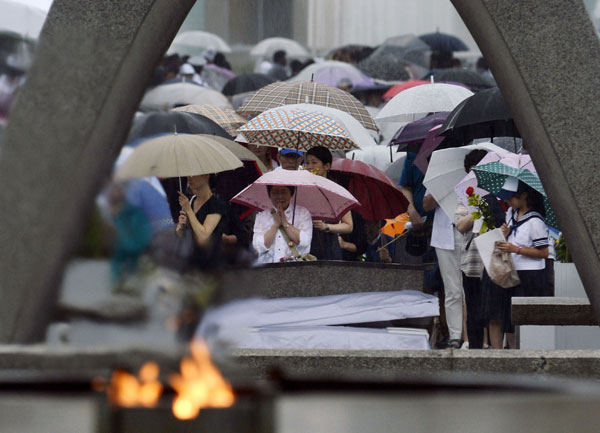Japan commemorates 69th anniversary of atomic bombing
Updated: 2014-08-06 14:35
(Xinhua)
|
||||||||
HIROSHIMA -- Hiroshima, the city that suffered US atomic bombing in 1945 during the World War II, commemorated the 69th anniversary of the bombing on Wednesday at the city's Peace Memorial Park.
Addressing before survivors of the attack, their descendants, peace activists and officials, including Japanese Prime Minister Shinzo Abe and US Ambassador to Japan Caroline Kennedy, Hiroshima Mayor Kazumi Matsui called nuclear weapons as an " absolute evil" that robbed children of loving families and dreams for the future.
"To eliminate the evil, we must transcend nationality, race, religion, and other differences, value person-to-person relationships, and build a world that allows forward-looking dialogue," the mayor said.
Meanwhile, Matsui said that the Japanese government should aware that the country has avoided war for 69 years due to the war- renouncing constitution, referring to a decision last month by the Abe cabinet allowing Japan's Self-Defense Forces (SDF) to exercise rights to collective self-defense.
"We must continue as a nation of peace in both word and deed," the mayor added.
Japan's pacifist constitution banned the country from using force outside Japan, but the collective self-defense rights gave green light to the SDF to combat overseas for countries having close relations with Japan.
Japanese experts on legislation said the cabinet decision has major legislative defect, while the majority of Japanese oppose the rights to collective defense, according to latest poll.
For his part, Abe said during the ceremony in Hiroshima that " as the only country to have come under nuclear attack in war and experience its horrors, Japan has a responsibility to realize a world without nuclear weapons, and to continue conveying their cruelty to future generations and to the world."
To accelerate Japan's surrender in the WWII, the US forces dropped an atomic bomb on Hiroshima on Aug. 6, 1945, killing an estimated 140,000 people.
Another atomic bomb hit Nagasaki on Aug. 9 the same year, and Japan surrendered to Allied Forces on Aug. 15, six days after the Nagasaki nuclear attack, bringing an end to the war.
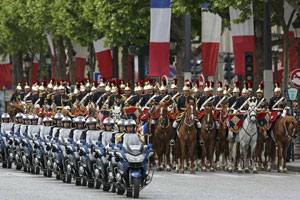 |
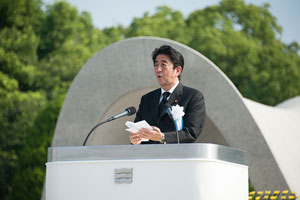 |
| Countries mark end of WWII | Japan marks 68th anniversary of Hiroshima bombing |
- Decoupling with China to hurt Japan
- Timing, wording of Japan's defense white paper raise serious questions
- Japan imposes sanctions on Russia over Ukraine
- S Korea slams Japan's isle claim
- Japan approves defense white paper for 2014
- Japan asks athletes to avoid exposing nationality in Nanjing
- Japan must accept its war crimes
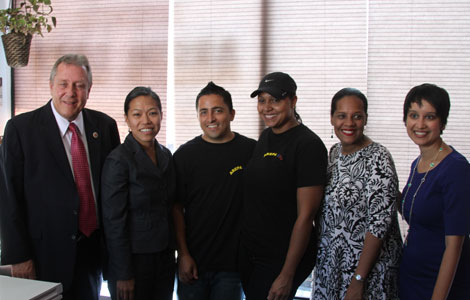
 NYC spurs small business
NYC spurs small business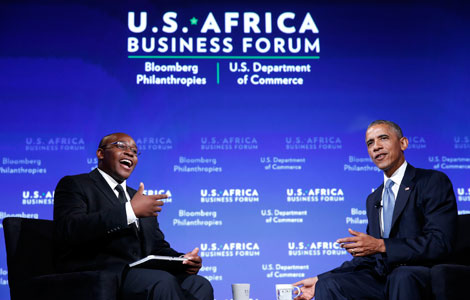
 US-Africa summit starts with development fora
US-Africa summit starts with development fora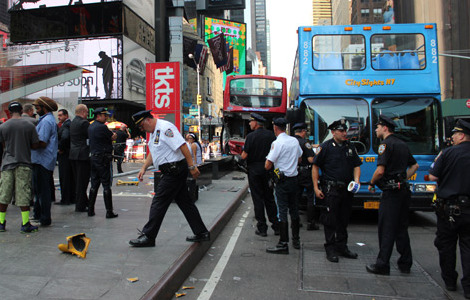
 Two double-decker buses collide in New York
Two double-decker buses collide in New York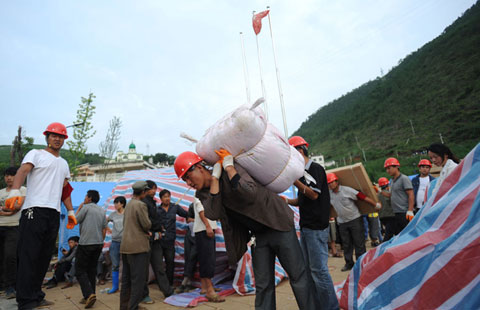
 Life in quake-hit areas of Southwest China
Life in quake-hit areas of Southwest China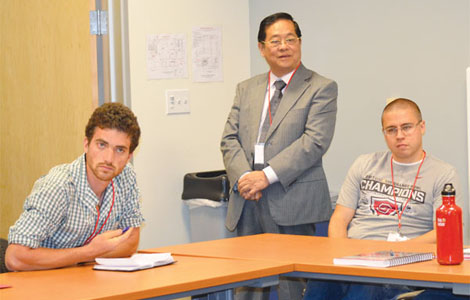
 Getting teachers to teach about China
Getting teachers to teach about China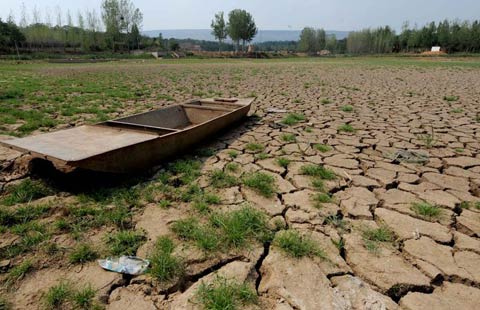
 Drought persists in Central China's Henan province
Drought persists in Central China's Henan province
 US artist creates lifelike baby animals
US artist creates lifelike baby animals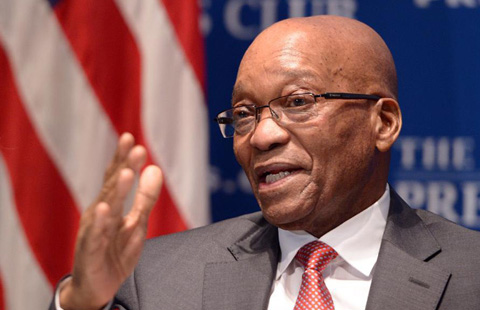
 US-Africa summit starts with fora
US-Africa summit starts with fora
Most Viewed
Editor's Picks

|

|

|

|

|

|
Today's Top News
Rescuers race to save lives as quake toll nears 600
589 dead as strong quake jolts SW China
China to punish Chrysler, Audi for anti-trust violations
US interest in Africa grows
Chinese firm developing Ebola reagent
Barrier lakes pose threat in quake-hit Ludian
2 Canadians probed in theft of State secrets
Envoy dismisses building freeze in S. China Sea
US Weekly

|

|
